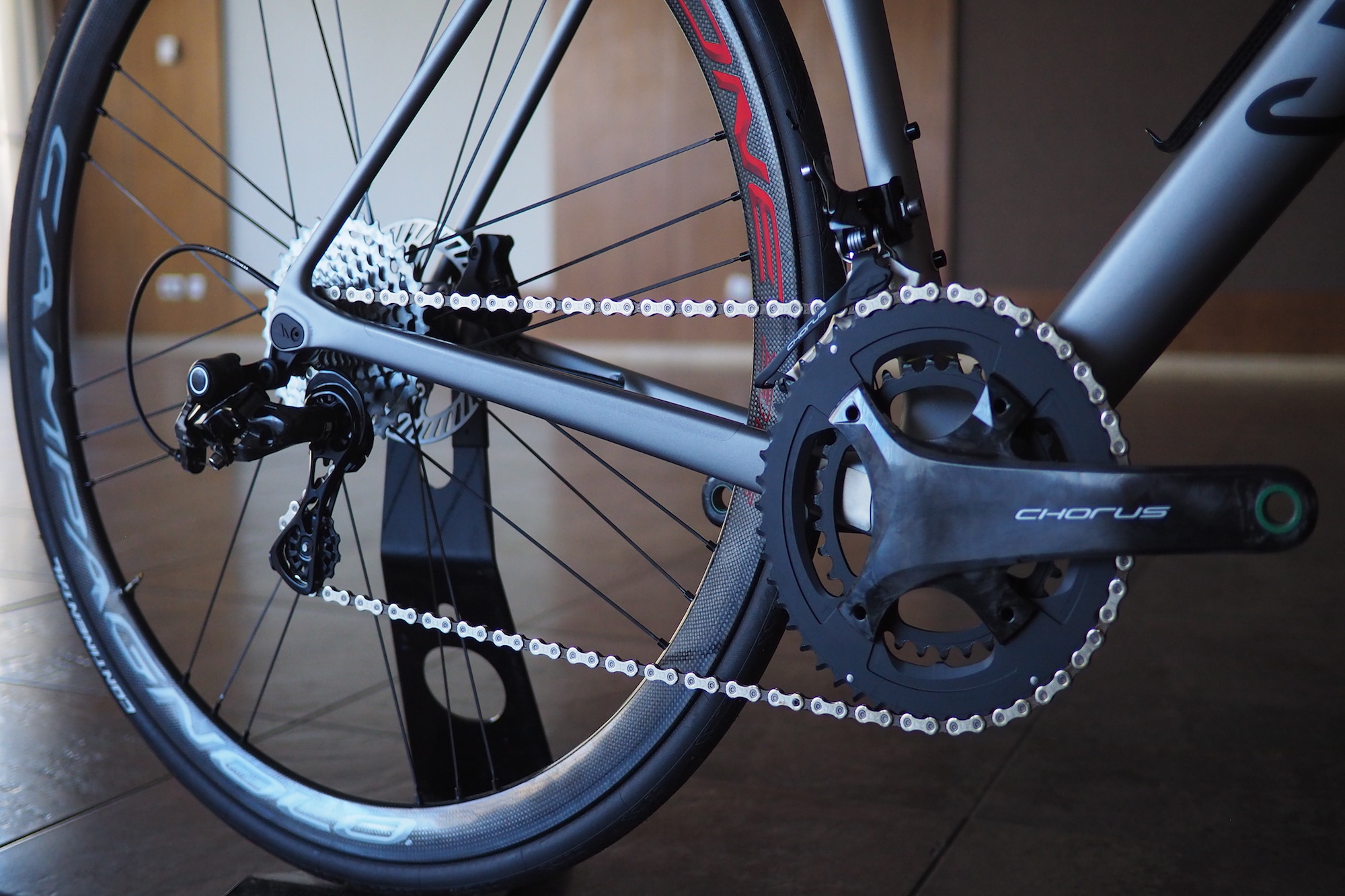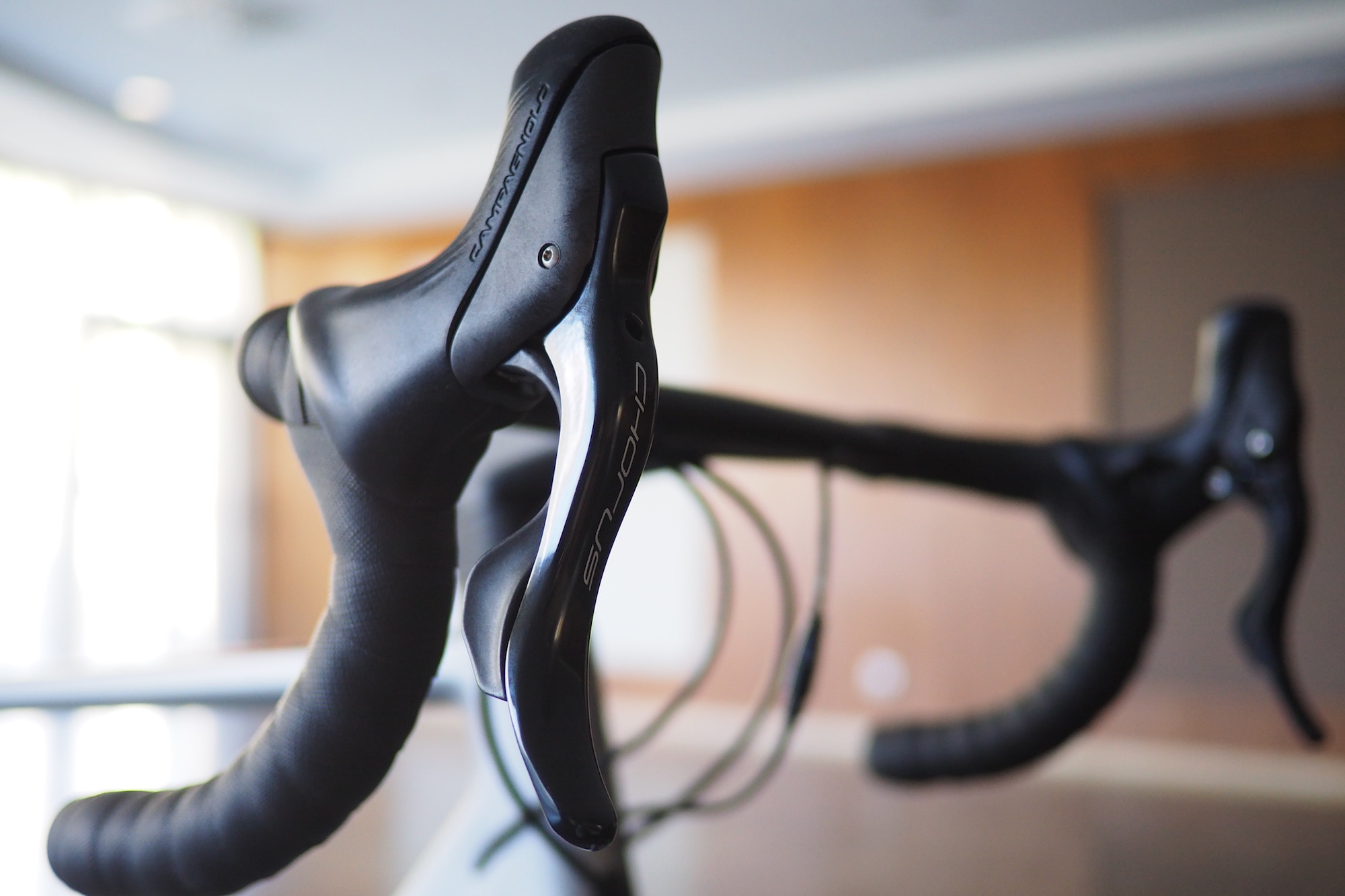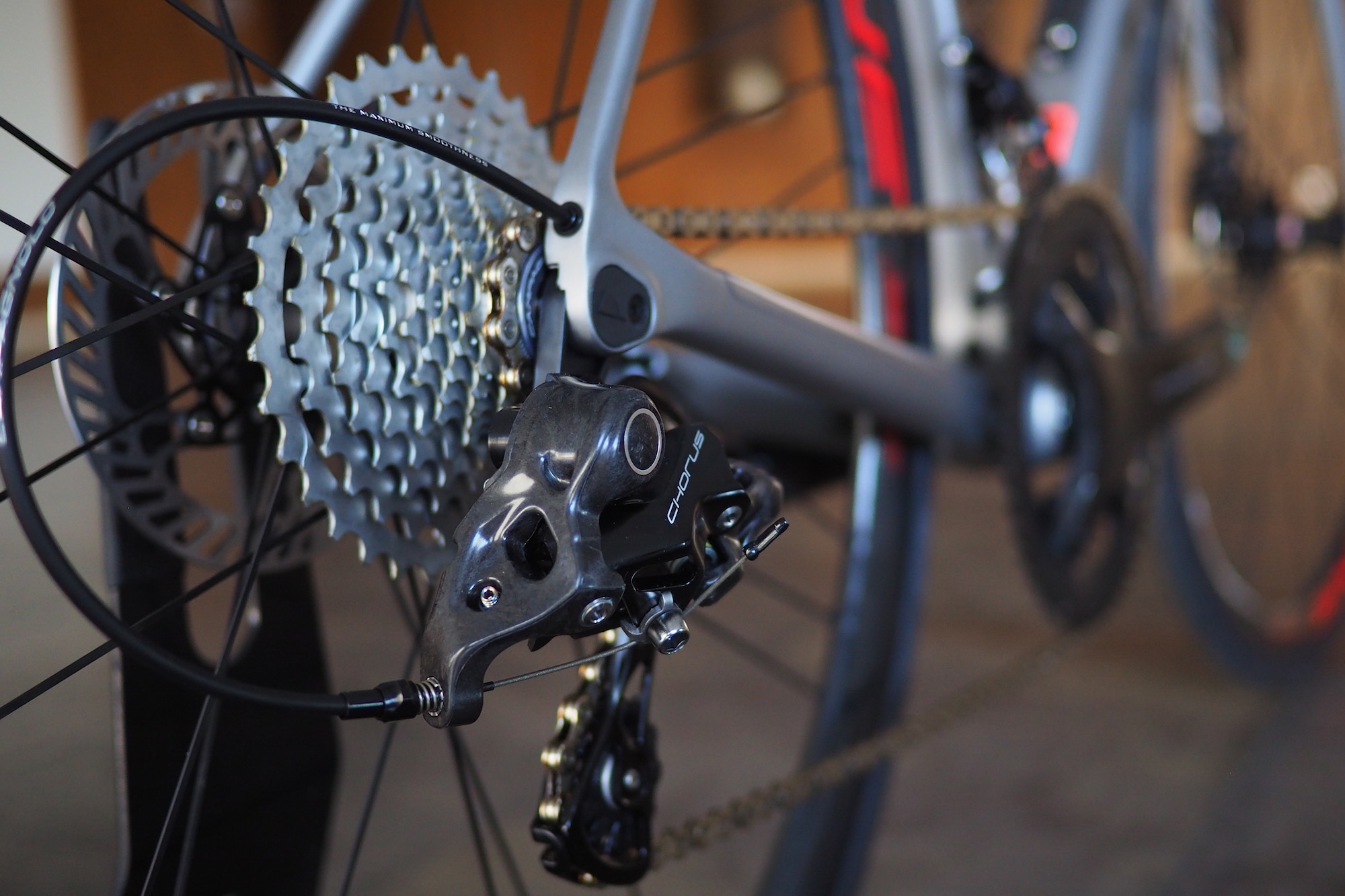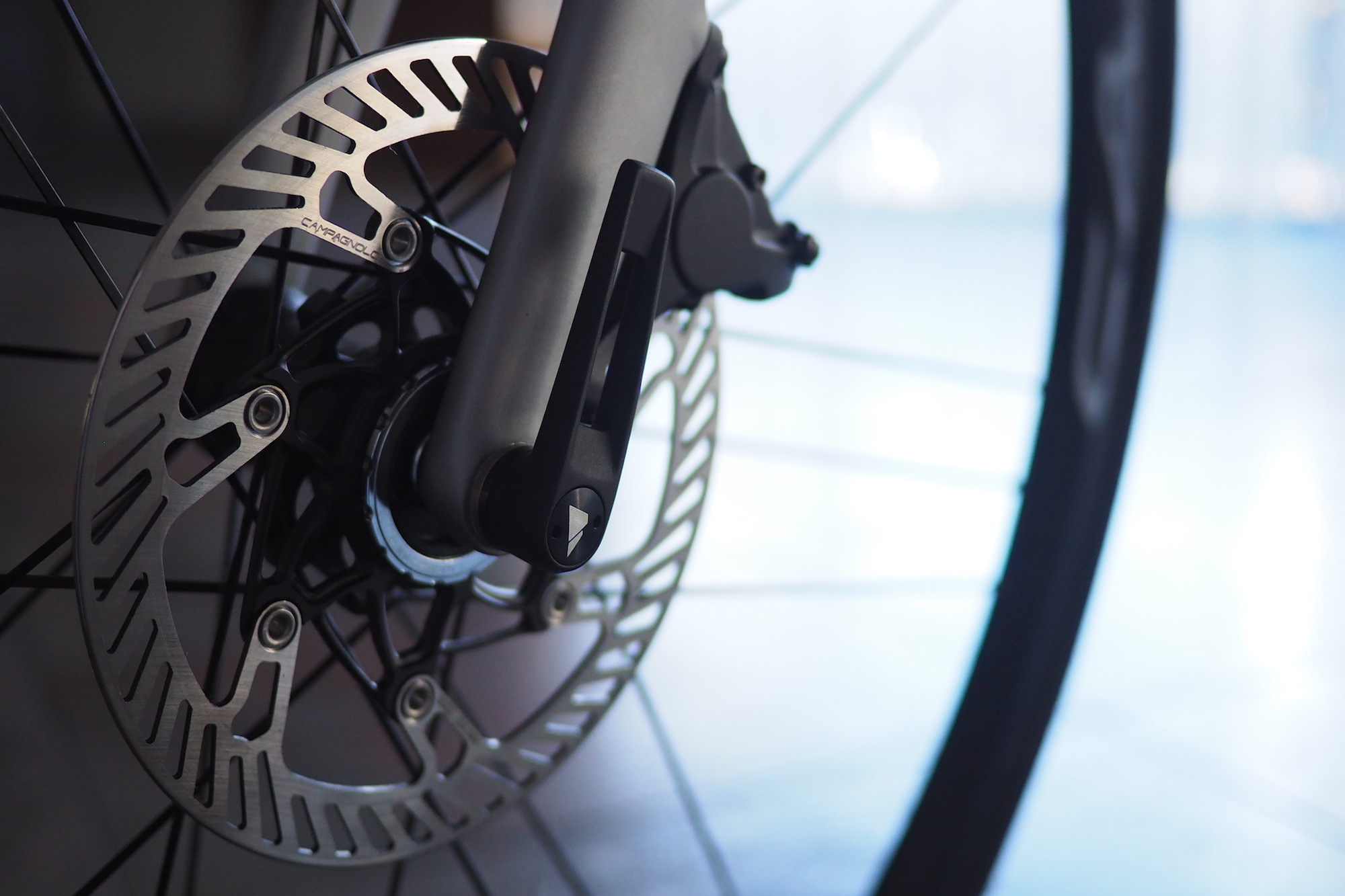Campagnolo launches an updated 12-speed Chorus groupset
Campagnolo has brought 12 gears and a Super Record makeover to its Chorus groupset

The latest race content, interviews, features, reviews and expert buying guides, direct to your inbox!
You are now subscribed
Your newsletter sign-up was successful
Campagnolo has launched an updated 12-speed version of its chorus groupset, bringing the greater number of gears futher down its groupset hierarchy.
Chorus follows hot on the heels of the Campagnolo Super Record EPS update of a couple of months ago and as is often the case with groupset updates, it has benefited from the ‘trickle down effect’. It has received much of the same technology as the top tier Record and Super Record groupos, but with material and weight differences. It’s not just the number of gears that it shares with Record and Super-Record.
Campagnolo Chorus: Ergopower updated
Campagnolo Chorus is available as a both a rim-brake groupset and a disc one, and in both forms it receives the updated controls that Record and Super Record pioneered a couple of years ago.
As is now standard on all of Campag’s disc brake options, the hoods sit 8mm higher than the rim-brake equivalent to better accommodate the master cylinder. While the groupset will have customisable ergonomics for small hands, the Chorus Disc brake levers miss out on the AMS adjustment of the Record or Super Record groupsets.

However, the brake lever pivot has been moved inline with the handlebar which, when coupled with the new double curved levers, increases stopping power and reduces lever pull. As mentioned above, the main differences are material and in contrast to Record and Super Record the Chorus levers are made of aluminium.
Campagnolo’s ‘one lever, one action’ philosophy remains, as does ‘ultrashift’: the ability to downshift five gears or up shift three. It’s an addictive way of changing gears and it can get you out of some tight spots such as when you come out of a dip and into a climb.
The latest race content, interviews, features, reviews and expert buying guides, direct to your inbox!
Although the thumb shifter’s size has increased on all of Campagnolo’s 12-speed groupsets it’s still a little hard to reach, especially when you sprint on the drops.
Campagnolo Chorus: Updated derailleur designs

For starters, Campagnolo has changed both derailleurs so they mimic more closely their more expensive stable mates.
The technology is the same; the rear deailleur comes with the same ‘3D Embrace Technology’ wherein the top pulley wheel is pulled forward, allowing the chain to engage more of the sprocket’s teeth, minimising wear and increasing efficiency. The front derailleur also has dedicated trim settings for each of its positions, making the chain line more efficient.
The designs are also the same, albeit with different materials used at the highest levels. For example, the front derailleur has the same thin cage design but it’s made of metal rather than carbon fibre. It also has the same free-stroke eliminating design that was first used on 12-speed mechanical Super Record.
It’s a similar story on the rear, with the derailleur being made of a technopolymer, while the lower part is made of aluminium. However, it still receives the same thin cage design to help avoid contact with wheel spokes.
In comparison to Shimano’s short and long cage derailleur options, with Campagnolo it’s one rear derailleur to rule them all. Its universal size is capable of accommodating both an 11-29, and an11-32 cassette as well as a new 11-34 standard cassette that’s only available at Chorus level.
Those cassettes will have the same single tooth increments up to the 7th sprocket that felt lovely to shift on. The same cassette is used across all three of Campag’s 12-speed groupsets. with the last two triplets being machined from one monolithic steel piece, and everything else being individual steel pieces with machined aluminium spacers.
Campagnolo Chorus: Crankset

Campagnolo’s advanced carbon resin gives Chorus’ new crankset the same shiny 'finish' as that of Record and Super Record. According to the brand, it’s not actually a finish, but rather produced as part of the layup process and it protects the groupset from UV rays that can harm the integrity of carbon fibre.
It also has the same flush finish thanks to Campag’s ‘Ultra-Torque’ axle that’s only accessible from the left hand side. It’s Q-Factor remains 145.5mm but it turns on standard bearings rather than Cult Ceramic ones.
The crankset is available in the standard 53/39, 52/36 and 50/34 guises but it is also available in a new 48/32 chainring size, certainly a subtle nod to the booming gravel market. It’s available with 165mm, 170mm, 172.5mm and 175mm cranks.
Campagnolo Chorus: Updated brakes

Campagnolo Chorus is available in both rim-brake and disc brake guises, with the former available in both caliper and direct mount options, with both being compatible with 28mm tyres.
Campagnolo’s disc brakes remain the same across all of its groupsets, meaning that there’s no difference materials or technology across the range. It also means the disc brakes great performance is the same across all the ranges.
Chorus does, however, introduce a new brake pad, which Campagnolo says offers a perfect balance between durability and power. The Italian company has also added a new spring to the caliper to aid the magnetic spring already in place with the returning of the pistons.
Campagnolo Chorus: Pricing and Availability
Campagnolo Chorus Disc Brake 12-speed will cost £1597 and Campagnolo Chorus rim-brake 12 speed will cost £1120.
Availability will be sometime in the mid-summer, according to Campagnolo.